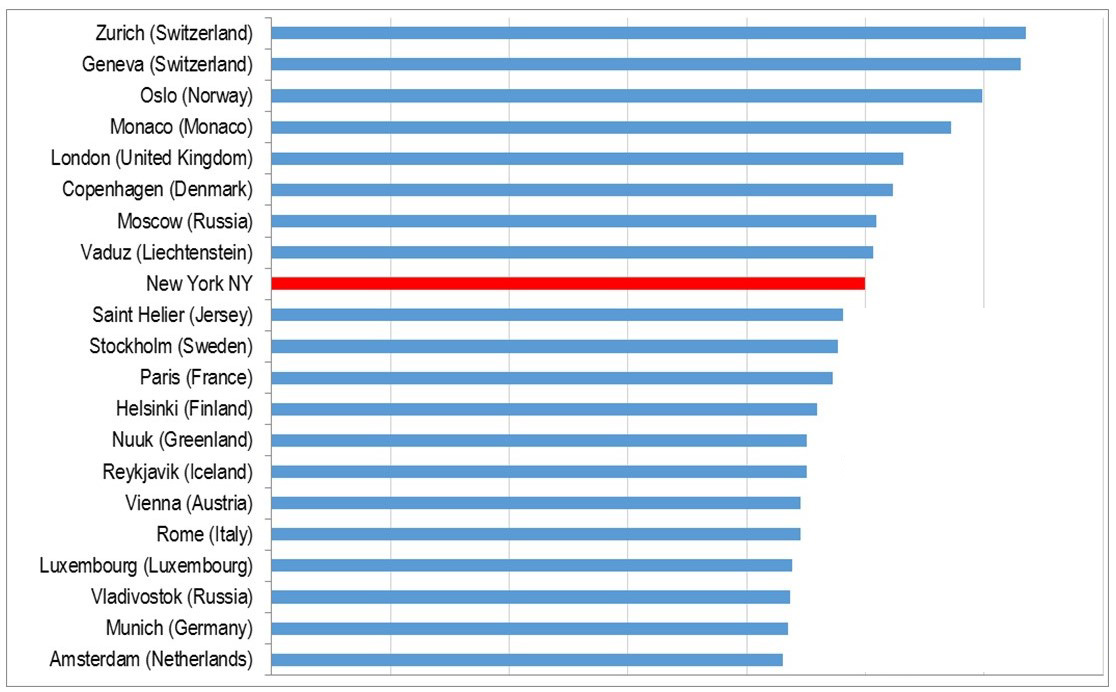- e-mail us
- We are Open
Germany
- Home
- Germany

Ways to immigrate to Germany & obtain residency
Immigration to Germany, the diverse methods of securing German residency and citizenship, and the regulations for obtaining various German visas are explored in this article. Germany is one of the countries with significant immigration, which also serves as a migration destination for numerous Kurds each year. Applicants for migration to Germany face numerous questions such as: What are the legitimate ways to obtain German residency? And is it possible to acquire German citizenship? What are the expenses involved in immigrating to Germany? In this article, prepared by the specialists at Talav Company, questions about migration to Germany are addressed, and all the methods of immigrating to Germany and their conditions are thoroughly explained. It is also possible to have your questions answered, dear ones, by phone and receive a free consultation.
Topics covered in this article:
– Immigrating to Germany: General Conditions
– Immigrating to Germany via Education
– Immigrating to Germany via Employment
– Immigrating to Germany via Investment
– Immigrating to Germany by Birth
– Immigrating to Germany via Marriage
– Immigrating to Germany via Asylum
– Living Expenses in Germany
– Conditions for German Citizenship
– Commonly Asked Questions
– Last words about immigrating to Germany

Immigrating to Germany: General Conditions
Germany, officially known as the Federal Republic of Germany, is situated in continental Europe and ranks among the most industrialized nations globally. Germany is also the wealthiest country in Europe. It consists of 16 states that have varying degrees of autonomy. Germany is a member of the United Nations, NATO, the G8, and the G5, and plays a pivotal role in the European Union. As the world’s fourth most powerful industrial nation, Germany hosts numerous large factories and companies, creating abundant job opportunities. In recent years, Germany has faced labor shortages, attracting migrants worldwide. Consequently, Germany has implemented immigration programs and incentives to attract immigrants. Its renowned education system, featuring free universities, further enhances its appeal as an immigration destination. As a result, many immigrants, including a significant number of Kurds, choose Germany as their preferred destination. The image below provides general information about Germany.
Immigrating to Germany and navigating the various pathways to residency is a popular topic in Google searches. The pathways to immigrate to Germany are categorized into several types, reflecting the increasing interest in immigration. As interest grows, prospective immigrants should carefully select their immigration path, seeking advice from experienced consultants and immigration lawyers in Germany. Continue reading to explore the diverse pathways to immigrate to Germany.
Immigrating to Germany via Education
Studying in Germany has become increasingly attractive, especially in recent years. Reasons include the high academic standards at German universities, the tuition-free education system, excellent scientific and educational services, the opportunity to study in both English and German, and favorable employment prospects post-graduation. It’s important to note that studying alone does not lead to permanent residency in Germany. Graduates must secure employment in Germany after completing their studies and transition to a work visa. Graduates have 18 months to seek employment related to their field of study in Germany.
UNDERGRADUATE STUDY IN GERMANY
Students who have completed a 12-year diploma in Kurdistan with proficiency in German at B1 or B2 levels can undertake a 9-month preparatory course in Germany leading to a bachelor’s degree. Students with a high GPA may be eligible for direct admission to top German universities without the preparatory course.
POSTGRADUATE STUDY IN GERMANY
Master’s programs in Germany are offered in both English and German. Students can pursue a master’s degree with an IELTS score of 6.5 or higher or equivalent proficiency in German (B2 level). Tuition fees for master’s degrees are minimal, typically ranging from 150 to 300 euros per semester.
STUDY PHD IN GERMANY
Admission to PhD programs in Germany requires approval from a supervisor. Applicants with a strong academic background who receive supervisor approval can pursue a PhD in Germany. PhD studies in Germany are considered employment, allowing students to support themselves based on their academic performance. However, the financial support varies among students.
Immigrating to Germany via Employment
Immigrating through employment is one of the most viable pathways to Germany. A German work visa is usually necessary to pursue work opportunities in the country. There are two primary ways to obtain a German work visa.
GAINING A GERMAN WORK VISA THROUGH JOB OFFER
One approach is to apply for a German work visa upon receiving a job offer from a German employer. This method allows applicants to immigrate to Germany if the employer demonstrates a need that cannot be met by local or EU applicants. However, recent updates to German work visa regulations prioritize local and EU candidates over non-EU applicants.
GERMANY JOB SEEKER VISA
Another option is the Germany Job Seeker visa, designed for skilled individuals seeking employment in Germany. This visa grants a six-month period for job seekers to reside in Germany and secure employment aligned with their qualifications. Applicants must hold at least a bachelor’s degree and possess relevant professional experience in their field of study. As of 2020, the eligibility criteria for the Germany Job Seeker visa have been relaxed, allowing applicants with two years of specialized education and recognized degrees to apply. Proficiency in English or German is also required for this visa.
A detailed examination of working conditions in Germany is illustrated in the chart below, depicting trends in unemployment rates in recent years.

Immigrating to Germany via Investment
Germany, a leading economic powerhouse in Europe, has experienced substantial economic growth in recent years. This, among other factors, has attracted numerous foreign investors interested in tapping into German markets. Currently, the primary method for investment in Germany is through business registration, often requiring minimal capital investment. Investors seeking residency and citizenship in Germany can achieve this by registering a company in the country. However, obtaining approval for business plans from the German Chamber of Commerce can be challenging, with few applications approved annually. As an alternative, investing in neighboring countries like Austria, which offers comparable living standards, may be considered with similar capital investment.
Immigrating to Germany by Birth
One way to obtain citizenship is by birth. Citizenship laws globally follow either jus soli (birthplace) or jus sanguinis (bloodline). In Germany, citizenship is primarily based on jus sanguinis, meaning a child inherits German citizenship from their parents. A child born in Germany inherits their parents’ citizenship until adulthood, when they may choose German citizenship, depending on dual citizenship laws of the other country.
Under German law, citizenship can be acquired through:
- Being born to German parents.
- Being born in Germany to unknown parents.
- Living in Germany for at least 8 years by the age of 21.
- Attending German schools for at least 6 years.
It’s important to note that German citizenship is based on descent, so a child with at least one German parent is considered German regardless of birthplace.
Immigrating to Germany via Marriage
Another route to German citizenship is by marrying a German citizen or resident, though strict laws now regulate this to prevent abuse. Proof of genuine intent is required, including family photos, emails, marriage certificate, celibacy certificate, and a clean criminal record. The sponsoring spouse must also show financial capability to support both parties in Germany.
A key condition is having basic proficiency in the German language, and a foreign spouse may receive a residence permit after living in Germany for at least 3 years. Marriage visas are among the more accessible but closely scrutinized visas by German authorities.
Immigrating to Germany via Asylum
Another method to immigrate to Germany is by seeking asylum. Under the Geneva Convention, individuals facing insecurity in their home countries can seek protection from member countries of the Convention. However, due to the high number of refugees globally, particularly in Germany, asylum applications are rigorously scrutinized, increasing the likelihood of rejection. Pursuing asylum is highly discouraged due to the associated risks.
Asylum seekers in Germany are provided with basic services, including food, clothing, and accommodation. However, the housing provided may not meet health and safety standards, and asylum seekers must accept these conditions until their application is processed to continue receiving government support.
Living Expenses in Germany
When considering immigration to Germany, understanding the cost of living is crucial. Germany, being centrally located in Europe and highly industrialized, offers a reasonable cost of living compared to similar countries. Düsseldorf is among the most expensive cities, with an average monthly living cost of €2,600, whereas Leipzig is known for being more affordable, with an average monthly cost of €1,900. Below is a table detailing various living costs in Germany.
|
Costs (euro) |
Items |
|
10 |
Having food in Restaurant |
|
10 |
Cinema tickets |
|
70 |
Monthly transportation |
|
214 |
Monthly welfare services |
The illustration below displays the cost of living in European nations, providing a basis for comparing Germany with other countries:
Conditions for German Citizenship
The final step in moving to Germany is obtaining German citizenship. There is no quick route to German citizenship. In all methods, individuals must reside in Germany for a set period and then gain permanent residency in Germany before applying for citizenship. People married to a German citizen can apply for citizenship after living in Germany for 3 years. Generally, others must work in Germany for at least 5 years and pay taxes to qualify for permanent residency. After securing permanent residency, one can apply for German citizenship and a passport after another 3 years. To achieve this, one must demonstrate integration into German society and familiarity with the country’s culture, history, and language.
Commonly Asked Questions
✅ How can I move to Germany?
first step in moving to Germany is understanding the immigration process and selecting the best option. Then, you need to meet the conditions and gather the necessary documents based on the chosen method.
✅ What are the best and easiest ways to stay in Germany?
Your personal situation plays a crucial role in choosing the best way to immigrate to Germany. Generally, working, studying, and investing in Germany are the most recommended ways.
✅ What are least expensive ways to move to Germany?
Working in Germany is one of the most cost-effective ways to immigrate. Studying in Germany is also a relatively low-cost option.
✅ Is it necessary to apply via a lawyer to move to Germany?
No. You can learn the immigration rules for Germany independently. However, an immigration lawyer can expedite the process, offer more experience, and be fully aware of the latest immigration laws in Germany.
Last words about immigrating to Germany
Immigrating to Germany has been reviewed through various methods. When selecting the best way to move to Germany, it is beneficial to consider multiple avenues, such as studying, working, investing, or starting a business in Germany, or consulting with experienced professionals in this field. Based on your circumstances, choose the optimal way to immigrate. For free advice.

for immigration & Travel
Useful Links
Warning! The information provided on this website is based on research conducted by non-legal professionals, and Talav Company does not assume legal responsibility for the accuracy or reliability of this content.
We highly recommend that you independently verify this information and consult with a qualified local attorney to ensure it is applicable to your specific situation.

